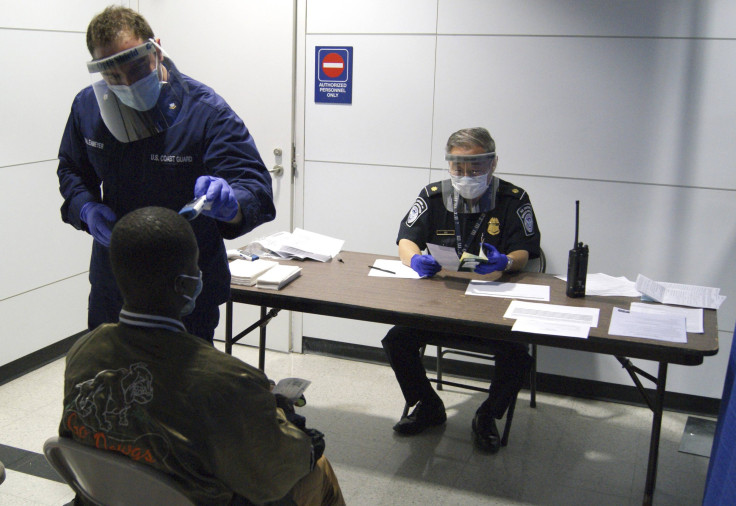Ebola Outbreak 2014: Georgia, Minnesota Governors Institute New Restrictions

New Jersey and New York relaxed their Ebola quarantine policies Monday morning, but by evening Georgia and Minnesota had instituted new restrictions aimed at containing any potential cases of the virus. The moves underscored the increasingly piecemeal approach state governments are taking to the ongoing Ebola scare, even though the disease has killed just one person on American soil.
Georgia Gov. Nathan Deal announced Monday anyone who arrives in Georgia from Ebola-affected countries will be screened for symptoms of the virus, the Associated Press reported. Protocol will dictate they be treated in one of three ways. Travelers who have been exposed to Ebola will be monitored and quarantined in a dedicated facility. Health workers who treated Ebola patients but show no symptoms will be sent home and monitored by state health officials. And travelers from affected countries who have not been exposed to Ebola or come into contact with Ebola knowingly will have to agree to self-monitor for 21 days and keep in contact with state health officials.
"I have developed, in coordination with my Ebola Response Team, a policy to more aggressively monitor travelers from affected countries, symptomatic or not, and quarantine if need be," Deal said, according to WSB-TV, Atlanta. "We are taking these proactive steps to protect the health of the people of our state, and this new policy is an altogether effective and appropriate response at this time."
Minnesota Gov. Mark Dayton announced similar measures Monday. Travelers who visited the impacted countries would have to submit daily health reports to state health authorities for 21 days. Health workers who treated Ebola patients but did not knowingly get exposed to the virus would not be confined to their homes, but those who report they were exposed while abroad would be required to stay home for three weeks following return to Minnesota, the Minneapolis StarTribue reported.
“My No. 1 priority is to do whatever will best protect all Minnesotans from exposure to this disease,” Dayton said, according to the StarTribune.
The Ebola epidemic has been mostly contained to three West African countries, Liberia, Guinea and Sierra Leone, which have seen more than 5,000 deaths from the disease since it first broke out in Guinea in March. But some state governments have taken steps recently to stop an outbreak in the U.S. from occurring.
When news emerged last week Dr. Craig Spencer -- who recently returned from treating Ebola patients in Guinea -- was diagnosed with Ebola within 48 hours of visiting a bowling alley, riding the subway and eating at a meatball restaurant in New York City, politicians like New Jersey Gov. Chris Christie and New York Gov. Andrew Cuomo started to consider mandatory quarantines.
On Friday, Cuomo and Christie instituted a mandatory quarantine policy aimed at isolating people entering the U.S. from Ebola zones. Later that day, Maine nurse Kaci Hickox became the central figure in the ongoing debate over quarantining travelers returning from West Africa who may have been exposed to Ebola when she arrived at New Jersey’s Newark Liberty International Airport after working to help end the outbreak in Sierra Leone. She was taken to a tent without a shower in a Newark hospital, where she was slated to be involuntarily held in mandatory 21-day isolation under Christie’s policy.
Hickox described her ordeal at the hands of New Jersey health authorities as “frightening” in a first-person piece deriding the quarantine policy published in the Dallas Morning News during the weekend. The quarantine protocols quickly came under fire by President Barack Obama and leading health experts, who argued they were not rooted in science and could negatively impact the effort to fight Ebola in West Africa by discouraging health workers from traveling there.
Christie and Cuomo Monday lifted their states’ mandatory quarantine policies, announcing residents not displaying Ebola-like symptoms would instead be allowed to quarantine themselves in their homes.
© Copyright IBTimes 2025. All rights reserved.





















